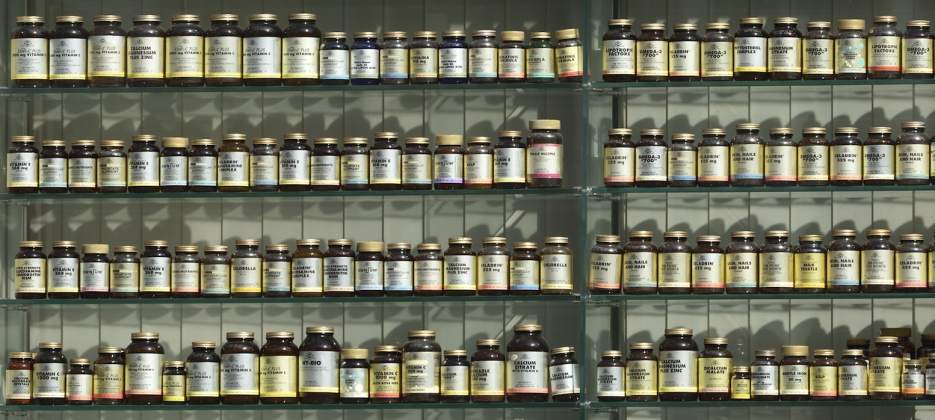 What is a Dietary Supplement?
What is a Dietary Supplement?
A whopping 68% of Americans take a dietary supplement. According to the federal Food, Drug, & Cosmetic Act, a dietary ingredient (or dietary supplement) is defined as a vitamin, mineral, amino acid, herb, or other botanical, intended to supplement the diet by increasing the total dietary intake of that substance. A dietary ingredient can also be a “concentrate, metabolite, constituent, extract, or combination of the preceding substances.” In other words, a dietary supplement should be something that we normally get in our diet. It should be something in food that needs to be supplemented by taking it in a form other than food. Because the components of a supplement theoretically originate from food, it makes sense that dietary supplements fall into the category of foods, rather than drugs.
The Good Guys
Many of the supplements out there do conform to this definition: they are vitamins or minerals, or they are extracts of foods that are normally part of the diet. If manufactured in a safe and sanitary manner, they generally don’t pose much harm (when taken in recommended dosages).
The Bad Guys
However, there are other supplements that do not conform to this definition. Many supplements currently on the market contain substances other than dietary ingredients. Most often, they contain drugs. Why would a dietary supplement manufacturer put drugs in a supplement? Quite simply, because the drug produces the desired effect. In general, drugs produce much more dramatic effects than do legitimate dietary ingredients. This is exactly why they’re drugs. If dietary ingredients alone were effective at lowering blood pressure, for example, or capable of producing sexual enhancement, then we wouldn’t even have a need for those drugs because people would simply eat the relevant foods instead. Effects from foods and dietary ingredients are often subtle, so the easiest way to produce an effect in one’s customers is to put a drug in the formulation.
Unfortunately, while this practice may indeed produce dramatic effects, it goes against the definition of a dietary supplement. And it’s not safe. A dietary supplement should provide a little extra of nutrients you are already getting. Supplements should not treat, diagnose, prevent, or cure diseases. That’s the job of a drug.
Medical Claims Are For Drugs
Because supplements can’t diagnose, prevent, or treat diseases, they can’t make medical claims, either. That means claims such as “treats heart disease” or “lowers cholesterol” are not allowed for dietary supplements. Only drugs can make claims like these. Therefore, if a supplement makes a medical claim, it falls into the category of a drug. This means that the product requires a new drug application. Again, for regulatory purposes, supplements are foods, not drugs. So anything with a drug claim automatically falls into the category of a drug.
This means that there are numerous ways in which a dietary supplement can violate the law:
- The supplement could fail to contain the ingredients listed on the label (economic adulteration)
- The product could contain an unapproved ingredient, such as a drug
- It could contain filth or other toxic material (heavy metals, pesticides, etc.)
- The product could make a medical claim
- It could fail to follow good manufacturing practices
- The product could be of a different strength/purity than listed on the label
Sadly, supplements have been found in violation of the law in each of these ways. It stands to reason that rules should exist to keep these practices from occurring. However, the federal government is hamstrung when it comes to regulating dietary supplements. The Dietary Supplement Health and Education Act, passed by Congress in 1994, changed the regulation of supplements. Under this law, dietary supplements reside in the category of foods, rather than drugs, which means that they no longer require pre-market approval from the FDA. The FDA can take some actions to remove products from the market, but the agency must first establish that such products are adulterated or misbranded before doing so.
Too Little, Too Late
So what is the FDA doing to keep these products from reaching the market? Unfortunately, the answer is that they really can’t do anything. Because supplements don’t require pre-market approval, agencies can’t do anything until the product is already on the shelves. Once it’s on the shelves, the FDA can investigate and perform testing. Sadly, this testing sometimes comes too late. Testing only after a product is on the market leaves open the possibility that someone could suffer an adverse event in the interim.
The FDA works tirelessly to remove dangerous supplements from the market once these products do hit the shelves. The agency is involved in investigations, analytical testing, public education (like this post on bodybuilding products and this post on imported supplements), and even (very occasionally) product seizures.
A more effective strategy would be to legislate the sale of dietary supplements such that they require pre-market approval, and a product would not be allowed on the market until the manufacturer demonstrates its safety and efficacy. As the law currently stands, dietary supplements, like foods, are not required to be proven safe before they enter the market. They may be safe, or they may not be.
Where Does This Leave Consumers?
All of this leaves consumers in a precarious situation. While FDA does offer some tips on how to be an informed consumer when it comes to dietary supplements, the agency also relies on consumers to report adverse events associated with dietary supplements so that they can begin investigations. You can report an adverse event here. Sound like too little, too late? It might be time to write your congressional representative.
Erica Bakota is a GovLoop Featured Contributor. After earning her PhD in chemistry at Rice University, she joined USDA as a research chemist, where she studied lipid oxidation and alternatives to partially hydrogenated oils. She then returned to Houston, Texas to join the Harris County Institute of Forensic Sciences, where she led method development and validation for the Forensic Toxicology Laboratory. In March 2018, she made a move back to the feds and is now with the FDA as a chemist at the Kansas City Laboratory. Her work at FDA focuses on active ingredients in dietary supplements and pesticide residues in foods. You can read her posts here.





What a complicated compliance story! Thanks for sharing!